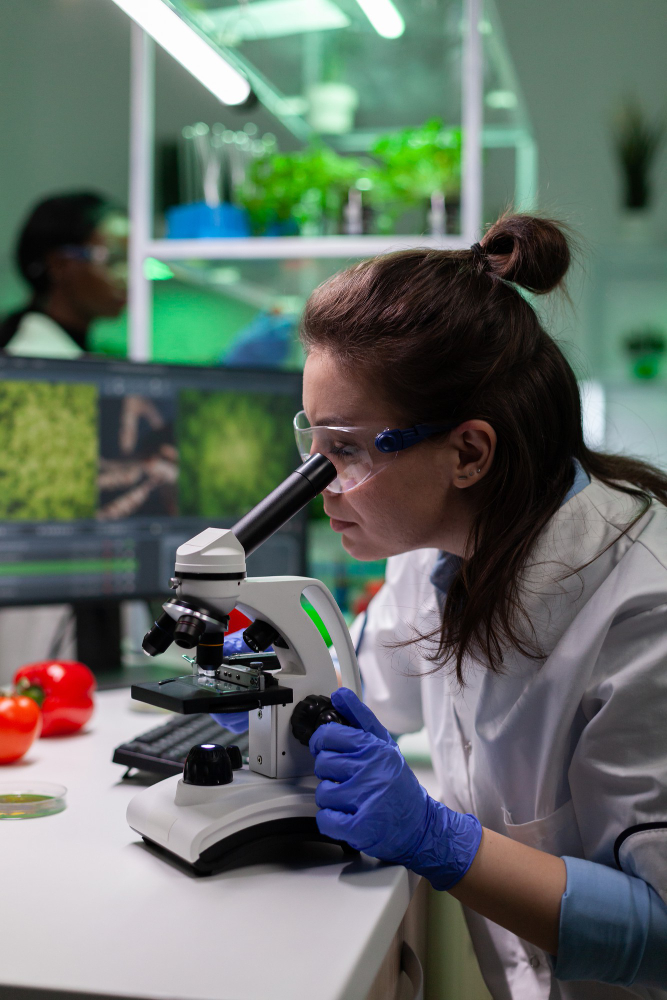Career counselling
Get expert advice to identify your strengths and choose the right career path.



Genetic modification, biopharmaceuticals, CRISPR technology, industrial biotechnology, and biotech product development for healthcare and agriculture.
Drug action mechanisms, clinical trials, pharmaceutical research, medicinal chemistry, and therapeutic development for pharmaceutical industry.
Disease mechanisms, diagnostics, medical research, pathology, and translational research for healthcare and clinical applications.
Ecosystem dynamics, conservation biology, biodiversity, climate change impacts, and environmental management for sustainability.
Microorganisms, infectious diseases, immune system function, vaccine development, and antimicrobial research for public health.
Marine ecosystems, oceanography, fisheries science, coral reef conservation, and aquatic biodiversity research.
Plant biology, crop improvement, agricultural biotechnology, sustainable farming, and food security solutions.
Protein structure, metabolic pathways, gene expression, molecular mechanisms, and fundamental biological research.


Get expert advice to identify your strengths and choose the right career path.
Receive personalized recommendations on courses that best fit your goals.
Guidance to find and apply for scholarships that ease your financial burden.
Step-by-step help with applications, documents, and meeting university requirements.
Support in understanding and securing the best loan options for your studies.
Assistance in navigating the visa process, from documentation to interviews.
Not required for undergraduate programs though science fair participation or lab experience beneficial. Graduate programs, especially PhD, strongly prefer research experience through internships, undergraduate research, or lab assistant positions demonstrating research aptitude.
Terms often used interchangeably referring to study of living organisms. Life sciences sometimes encompasses broader scope including health sciences and biotechnology applications. Biological sciences may focus more on fundamental biology. Program content matters more than title.
Yes—life sciences degrees provide excellent foundation for medical school. Must complete additional prerequisites and entrance exams (MCAT, etc.) required for medical programs. Many students pursue life sciences as pre-med pathway before medical school.
Both abundant! Industry opportunities in pharmaceutical companies, biotech firms, medical device companies, food industry, agricultural companies, and environmental consulting. Research careers in universities, government labs, and private research institutes. Industry often pays higher salaries.
Essential for most careers—programs emphasize hands-on lab training. Techniques like PCR, cell culture, microscopy, chromatography, and data analysis fundamental. Graduate research requires developing specialized technical expertise. Strong lab skills critical for employment.
Entry-level positions: $45K-$65K for bachelor's graduates, $60K-$80K for master's, $70K-$90K for PhD. Industry (pharmaceutical, biotech) typically pays more than academia. Senior scientists and research directors earn $100K-$180K+. Location and specialization significantly impact salaries.
Depends on career goals. Bachelor's sufficient for many lab technician, quality control, and research assistant positions. Master's opens senior scientist and project management roles. PhD required for independent research, university faculty, and senior industry positions.
Undergraduate programs provide broad foundation before specialization. Graduate studies require focused specialization. However, interdisciplinary fields like conservation genetics combine multiple areas. Career pivots possible throughout professional life as research interests evolve.
Absolutely! Ecology, marine biology, conservation biology, and wildlife biology involve extensive fieldwork. Opportunities range from tropical rainforests to arctic research, marine expeditions to wildlife reserves. Some careers primarily lab-based while others combine lab and field work.
MD-PhD programs combine medical training with research training producing physician-scientists. Alternatively, pursue research-focused life sciences career contributing to medical advances without clinical practice. Both paths contribute meaningfully to healthcare and human health improvements.